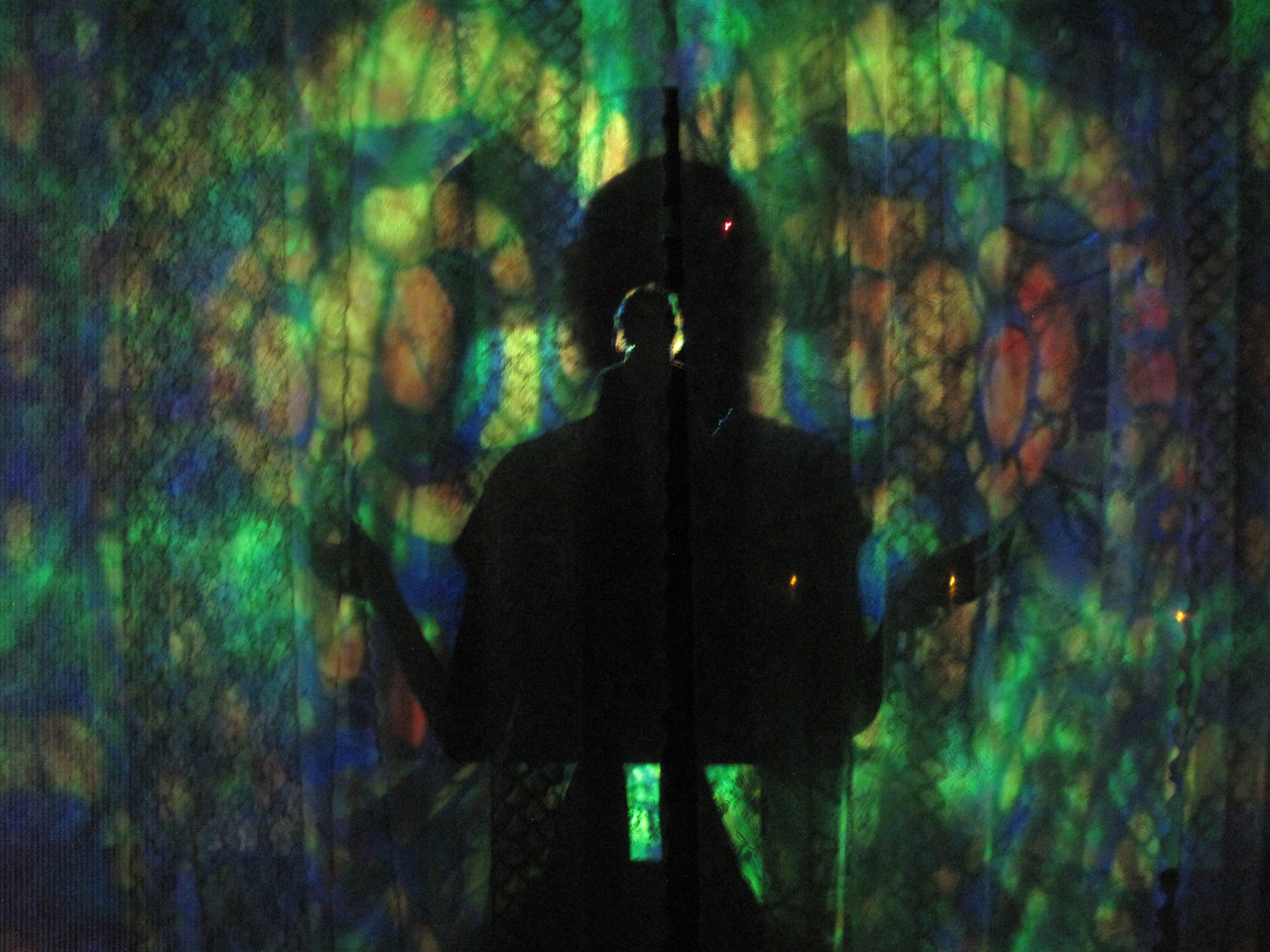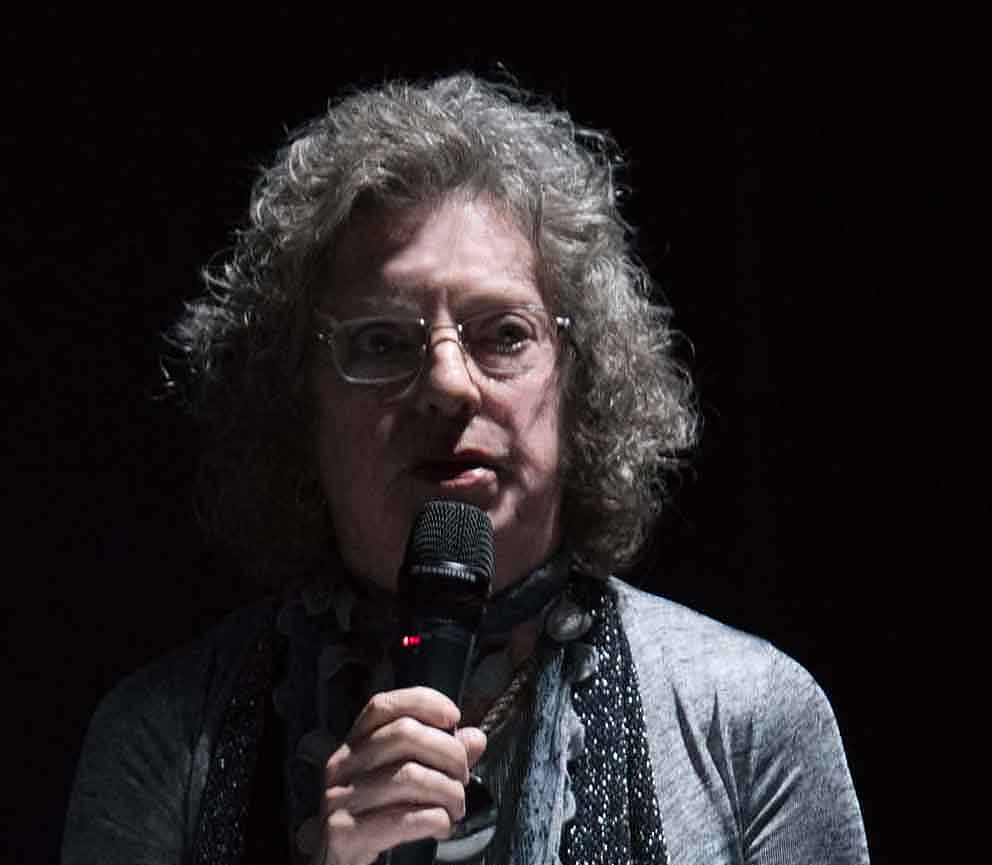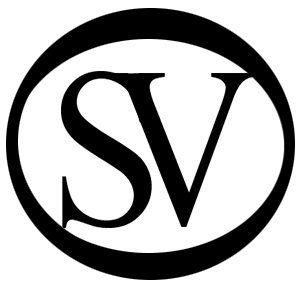about sandra
“The space created by art, especially with work that immerses the viewer in a total sensory environment, can act as a site for the imagination to discover alternate meanings and preferred options.”
– Sandra Vida

Embracing a time-based, multi-disciplinary approach that explores innovative combinations of media, Calgary artist Sandra Vida has been an important contributor to the coming of age of performance, film and video practices. Her art work over the past three decades has been exhibited locally, regionally, and internationally. She has also appeared as a speaker and panelist at conferences and her writing has been published in national magazines and artist catalogues.
Ongoing interests over her long career include her Scottish Celtic ancestry, spiritual exploration, psychological concepts and poetic text, which she weaves together with an evolving montage aesthetic. Performances often involve a reclaiming or restorative impulse and a meditative sensibility. Vida’s most compelling recent work is a series of multi-media installations that include aspects of sculpture, sound, video projection, and digital collage.
In addition to her art practice, she is known for her dedication to other artists through Calgary’s artist-run centres and as an advocate for the arts. She been nominated twice for a Governor-General’s award in media arts, and was one of 3 short-listed for a Marion Nicoll Art Award; she has been awarded grants to continue her work, and received the Epcor Established Arts award from Calgary’s Mayor for her dedication to the Calgary arts community.
ARTIST STATEMENT
I enjoy working with concepts that allow for a wide range of associations and layers of meaning, with the concept preceding and suggesting my choice of medium. My art projects have often been grounded in feminist and social issues, approached from the perspective of how the personal and political are intertwined.
The space created by art, especially installation work that brings together several disciplines to create a total sensory environment, can act as a space for the imagination to discover alternate meanings and options. My creative method is to juxtapose sometimes disparate or contrasting elements to produce new and different meanings.
I believe that art should be grounded in a community, and integrated with daily life on a number of levels. In a similar way I consider my work in the community as an important part of my cultural practice, influencing my choice of subject matter.
In the 90s, inspired by my community work on equity and diversity issues, I became more interested in exploring my Scottish/Celtic heritage. This investigation led to several major works with that focus: …near where my great aunt was born in 1992, Triad in 1995, Full Circle in 1997, and Kitchen Freedom in 2000. My heritage/identity continues to surface as an underlying concept in more recent video works like Elegy (2010), Journey (2014) and Portal (2016), with an additional awareness of the evolving body.
As I move into my 70s, I consider how aging is experienced and perceived, especially by and about women. I have become interested as well, in the operation of memory –the relation of memories to dreams as well as to life choices and attitudes. Another evolving aspect is that my work has recently become more abstract with a greater emphasis on the spiritual. I continue to explore both content and technique as my work evolves.
The artist is grateful to be living and working in Mohkinstis, the Blackfoot word for Calgary, and on the traditional territories of Treaty 7 Indigenous Nations — the Kainai, Piikani, Tsuut’ina, Siksika, Stoney Nakoda, and Metis Nation Region 3. We are all treaty people.

In Sandra Vida’s work there are always alternatives, it’s about alternatives. …From her first encounter with a colour photocopier in the early 1980s,…Vida has been a master of the unlikely but telling juxtapositions of image and symbol, word and meaning – both as formal device and conceptual strategy… there is more here, in the assemblage of alternatives presented to us, in the images and ideas that are at once highly personal, yet capable of having meaning for others, of describing a collective history, of suggesting an alternative present.
Christine Sowiak, catalogue for exhibition Kitchen Freedom, Nickle Arts Museum, 2000
